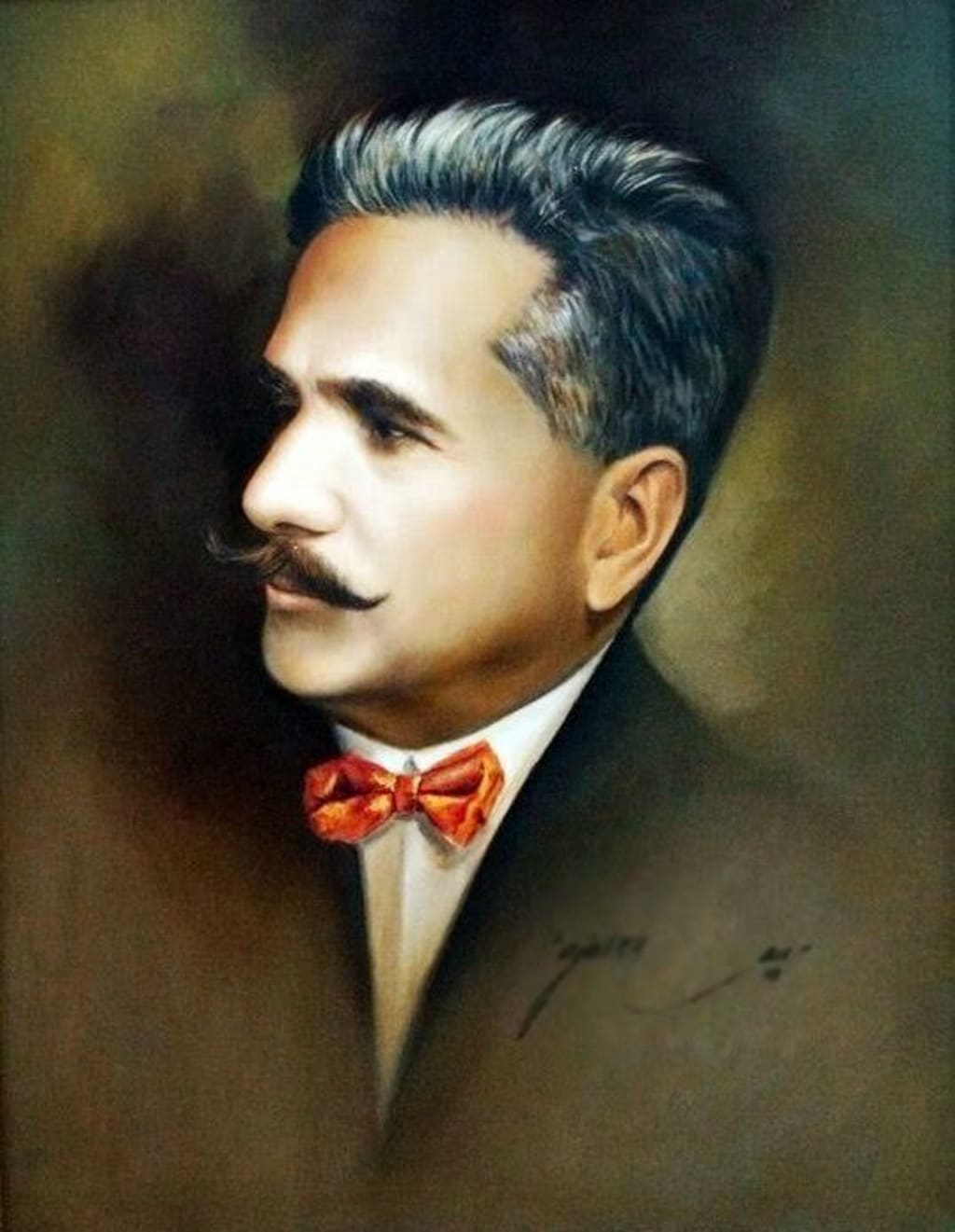
Allama Iqbal, also known as Muhammad Iqbal, was a philosopher, poet, and politician from the Indian subcontinent. He is considered to be one of the most influential figures in the development of the idea of Pakistan and is widely regarded as the national poet of Pakistan. Born on November 9, 1877, in Sialkot, Punjab, Iqbal's contributions to the fields of literature, philosophy, and politics have had a lasting impact on the cultural and intellectual history of the Indian subcontinent.
Iqbal's father, Sheikh Noor Muhammad, was a tailor who struggled to make ends meet. Despite their financial difficulties, Iqbal's parents ensured that he received a good education. He attended a local primary school in Sialkot and later enrolled at the Government College Lahore, where he studied philosophy, literature, and Arabic. After completing his studies in Lahore, Iqbal went to England to pursue a degree in law at the University of Cambridge. He obtained his law degree in 1908 and returned to India to practice law.
However, Iqbal's true passion was literature and philosophy. He began writing poetry at a young age and soon gained recognition for his works. His poetry is known for its depth of thought and philosophical insights. Iqbal's poetry reflects his ideas about religion, politics, and the role of individuals in society. He believed that Muslims needed to rediscover their past glory and strength in order to face the challenges of the modern world. His poetry inspired many Muslims in India to strive for independence and self-determination.
In addition to his poetry, Iqbal also wrote extensively on philosophy. He was particularly interested in the works of the German philosopher, Friedrich Nietzsche, and was influenced by Nietzsche's ideas about the will to power and the importance of the individual in society. Iqbal believed that individuals had the power to shape their own destiny and that it was the duty of the state to create conditions that would allow individuals to reach their full potential. He also believed that religion had an important role to play in shaping individual and collective identity.
Iqbal was deeply concerned about the state of Muslims in India and the challenges they faced. He believed that Muslims needed to take an active role in shaping their own destiny and that they could not rely on the British or the Hindu-dominated Congress Party to protect their interests. He argued that Muslims needed a separate state where they could live according to their own cultural and religious traditions. In 1930, Iqbal delivered a famous speech at the All India Muslim League's annual conference in which he called for the creation of a separate Muslim state in India. This speech is widely regarded as a key moment in the history of the Pakistan Movement.
Iqbal's political views were not always well-received by his contemporaries. Many Muslims in India at the time were reluctant to support the idea of a separate state and preferred to work within the existing political system. Some critics accused Iqbal of being a divisive figure who was only interested in promoting his own vision of Muslim identity. However, Iqbal remained committed to his ideas and continued to write and speak out about the importance of Muslim unity and self-determination.
Iqbal's legacy has had a lasting impact on the cultural and intellectual history of the Indian subcontinent. His poetry continues to be widely read and studied in Pakistan and India, and his ideas about religion, philosophy, and politics continue to inspire scholars and thinkers around the world. His vision of a separate Muslim state in India became a reality in 1947 when Pakistan was created as a homeland for Muslims in South Asia.
About the Creator
F.crick
I am a student.
AGe 17.
please like and subscribe my articles.
subscribe my youtube channel Tenshion gaming






Comments
There are no comments for this story
Be the first to respond and start the conversation.